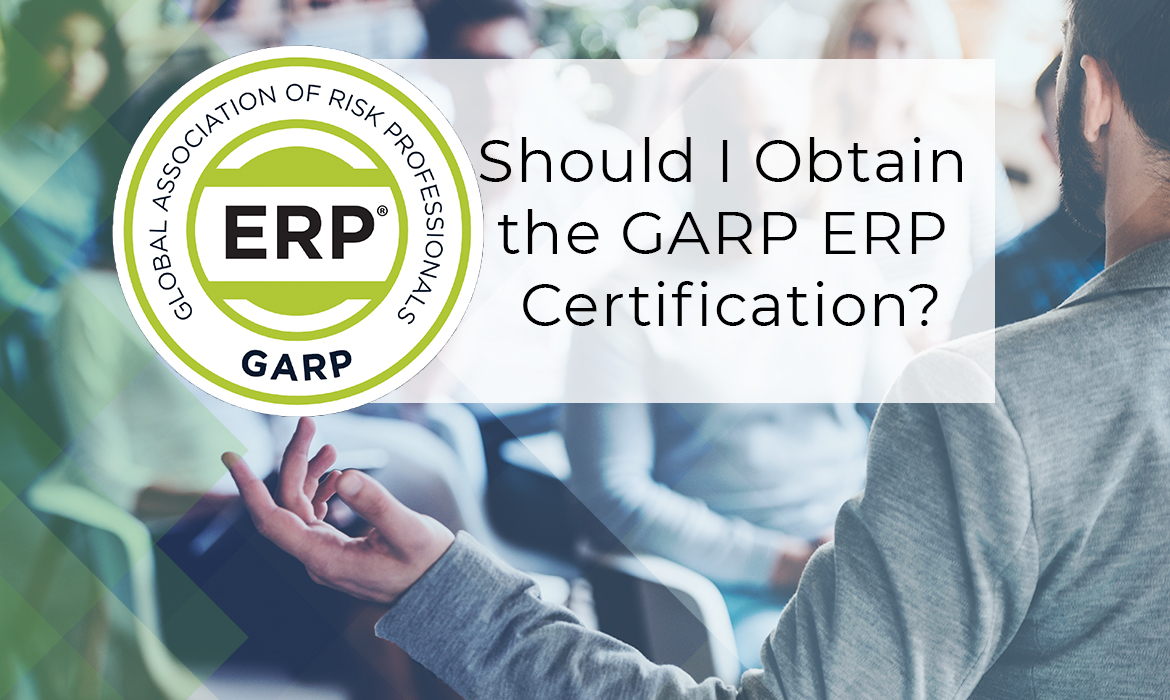As a holder of the Global Association of Risk Professionals (GARP) Energy Risk Professional (ERP) certification, people often ask me whether they should obtain it. As with most things, the answer depends on your situation. In this piece, I will attempt to provide an independent, though not entirely impartial, assessment of some of the factors one may consider when contemplating this question.
Will the ERP certification help me?
The ERP curriculum addresses a broad range of topics that are specific to the energy sector. These topics address issues across the three primary risk categories: market risk, credit risk, and operational risk. Critically, the curriculum is updated annually to ensure it addresses important current and emerging risk topics. This very targeted curriculum generally benefits people whose objective is one, or both, of the following:
Gaining Additional Knowledge – If one does not possess functional knowledge specific to energy risk, a substantial amount can be obtained from the extensive reading and other preparation required to successfully sit for the exam.
Establishing Credibility – Holding the ERP certification establishes that one possesses a baseline level of functional knowledge related to energy risk.
The utility of these two benefits can vary greatly, depending on one’s other credentials. Generally, aspiring or early-career risk professionals benefit greatly in both aspects, so this is the most obvious case. Further, if early-career professionals have obtained the ERP, they have demonstrated a certain amount of dedication to, and aptitude for, the discipline, which can pay dividends in their professional advancement.
The value proposition becomes more nuanced for more experienced professionals. For these people, obtaining the ERP may facilitate a transition, whether into a risk function from an unrelated function, or a transition into the energy sector from another industry. For example, if an accounting or IT professional wishes to transition to a risk-related role, the ERP may help. Holding the ERP may also be suitable for a person whose role necessitates establishing credibility quickly and repeatedly, as is the case for consultants, salespeople, etc. For experienced professionals, benefits may arise from the functional knowledge gained, the perceived credibility, or both.
Are there ongoing benefits?
There are several ongoing benefits of holding the ERP certification. These can generally be classified into two categories:
Ongoing Education – GARP arranges several types of educational events, whose purpose is to keep its members abreast of cutting-edge issues in risk management. These events range from multi-day classes and conferences to hour-long sessions, many of which can be attended remotely, and which are often archived on the GARP website for access at your convenience. GARP even requires its members to earn a minimum number of Continuing Professional Development (CPD) credits annually, though this has been loosely enforced, in my experience. In addition, GARP maintains an extensive library of written material on its website, such as whitepapers authored by GARP members, which address a wide range of risk management topics.
Talent Connections – In addition to the classes and conferences mentioned above, GARP conducts periodic meetings of local chapters, which reside in major cities across the globe. These events are very good opportunities to network, converse, and potentially collaborate, with likeminded people on interesting and challenging risk topics. In addition, GARP maintains a database of its members on its website, with the capability to house a professional profile, as well as a job posting board. I have found these resources very helpful in locating high-quality risk professionals to join my teams.
Should I proceed?
Holding the ERP may be particularly helpful if you are seeking entry to a career in marketing and trading or risk management. It may also be helpful to expedite establishing that you possess critical foundational knowledge, which will enable job interviews, or other interactions in which your qualifications are assessed, to progress to more advanced topics quickly. That said, the ERP is focused solely on risk management matters in the energy sector. Consider the skill or knowledge gaps you must overcome with respect to your professional objectives. The ERP may be useful on a stand-alone basis, or it could be coupled with the Financial Risk Manager (FRM) certification offered by GARP, or with other education or study, such as the Chartered Financial Analyst (CFA) designation , to help you achieve your goals.
At Veritas Total Solutions, we value the benefits that advanced learning opportunities and third-party certifications, such as the GARP ERP, can bring to our Trading & Risk Advisory practice, our firm as a whole and our clients. As mentioned above, the pros and cons of obtaining a certification should always be evaluated at the individual level to ensure the value exceeds the investment. If you are interested in the GARP ERP certification and have more questions, please contact Steve Kleege at steve.kleege@veritasts.com.

